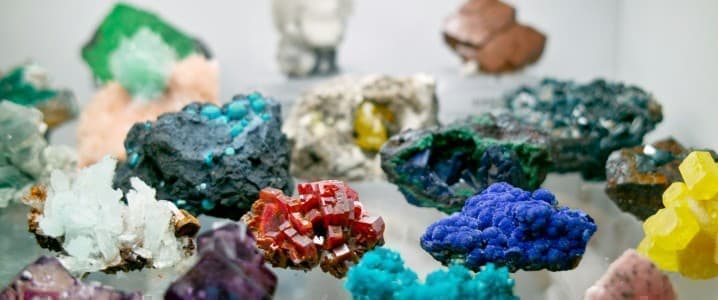The Crucial Role of Critical Minerals in Clean Energy
The clean energy revolution relies heavily on a consistent supply of critical minerals. These minerals are essential for the manufacturing of various technologies, ranging from wind turbines to electric vehicle (EV) batteries. Although not all critical materials are rare, they are not uniformly distributed worldwide, which raises geopolitical concerns as competition for these resources intensifies.
Understanding Critical Minerals
The United States Energy Act of 2020 provides a clear definition of ‘critical minerals.’ These are materials that are:
- Essential for the economic or national security of the United States
- Facing a supply chain vulnerable to disruptions
- Integral to the manufacturing of products vital for national or economic security
Projected Demand for Critical Minerals
According to projections from the International Energy Agency, global demand for critical minerals is expected to at least double, and potentially quadruple, by 2040. This surge in demand will be driven primarily by the electric vehicle market and battery storage solutions. Among these minerals, lithium will experience the fastest growth, while graphite, copper, and nickel will dominate overall demand when measured by weight.
Economic Opportunities and Environmental Concerns
The development of critical minerals presents significant economic opportunities for emerging economies. These resources can generate jobs, diversify economies, and significantly increase revenues—provided they are managed responsibly. However, the extraction of these minerals often has severe environmental repercussions. For instance, lithium production is notably water-intensive and can expose ecosystems and communities to hazardous chemicals. A notable incident in 2016 involved thousands of dead fish found in a Tibetan river, poisoned by chemicals from a nearby lithium extraction site.
Vulnerabilities in Supply Chains
The nature of critical minerals also makes them susceptible to supply chain vulnerabilities, which can have profound implications for national security and economic stability globally. A report by Vox highlights that the uneven distribution of these resources could lead to some nations facing disproportionate environmental burdens, while wealthier countries reap the economic rewards. Fluctuations in mineral prices or shortages due to emerging technologies could exacerbate these vulnerabilities in the clean energy sector.
The Influence of Major Suppliers
Considerable concern exists regarding the countries that dominate the supply of critical minerals, particularly China. Currently, China controls a significant portion of the global market for many of these essential materials. It supplies 85-95% of the world’s refined rare earth minerals and has maintained a near-monopoly on rare earth refining for decades. Additionally, China accounts for approximately 85-90% of world rare earth mine-to-metal refining, along with major contributions to cobalt, nickel, and EV-battery-grade lithium supplies.
Potential Disruptions in Global Markets
China has previously demonstrated its willingness to leverage its market position to disrupt global supply chains for political purposes. This vulnerability is further compounded by political elements, such as tariffs and rising nationalism. Consequently, global clean energy markets may face significant upheaval, impacting environmental efforts and economic stability. The potential for supply restrictions or sudden price surges poses a risk that could lead to bankruptcies among companies and hamper progress toward mitigating climate change.
In conclusion, the importance of critical minerals in the clean energy sector cannot be overstated. Ensuring a stable supply of these resources while managing environmental impacts is crucial for sustainable development and national security worldwide.
